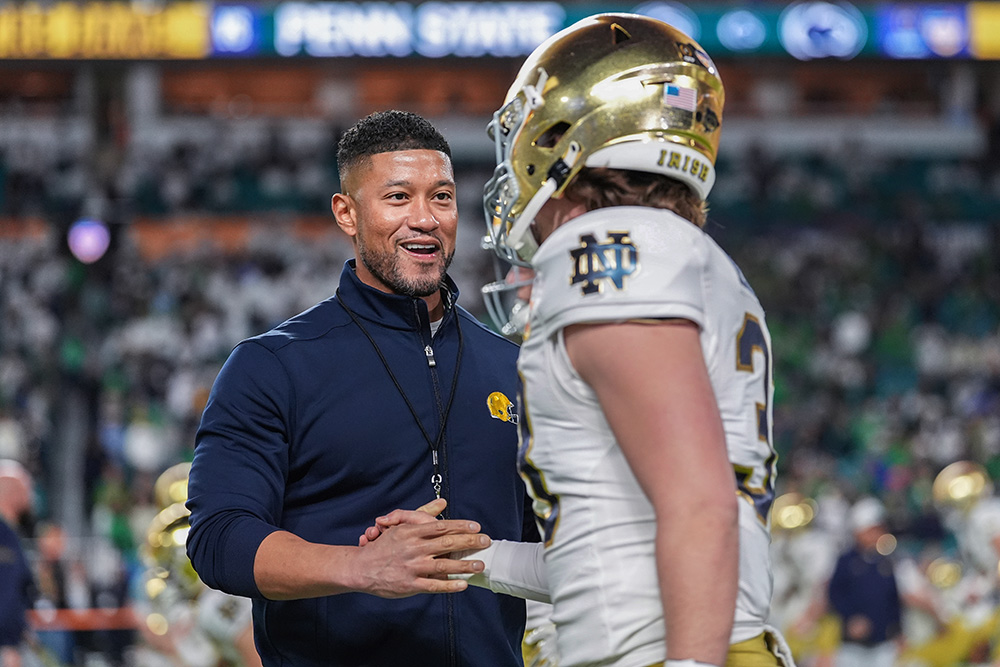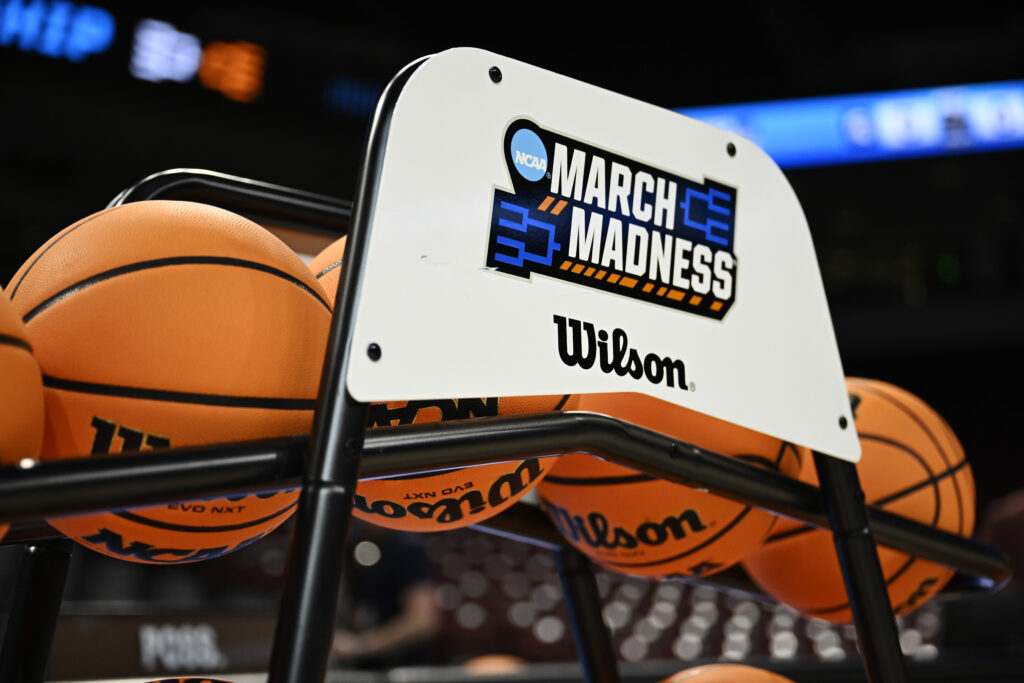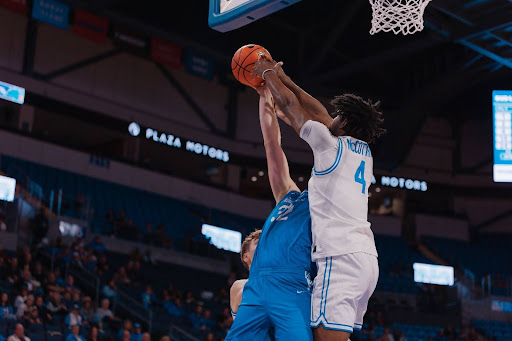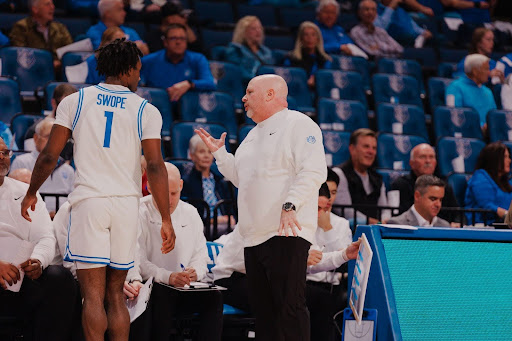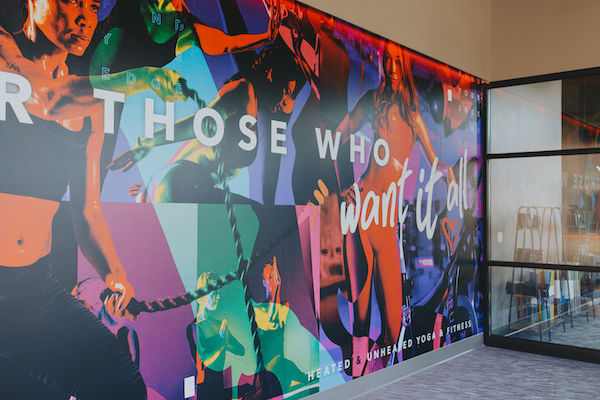For this week Robert R. Hermann Stadium will be the focus of international eyes. The CONCACAF Under-17 Qualifying Tournament is being held here in St. Louis. The participants hail from the Canada, El Salvador, Jamaica and the United States. Looking around the stands of Hermann Stadium, one can feel the international flavor that has taken hold of the usually quiet soccer stadium.
In the stands are a pair of fans for El Salvador, one with a flag and the other with bongo drums. Throughout the El Salvador match there are chants of “Vamos, vamos” and “Ole, ole, ole, ole.” But the loudest and most die-hard fans are the group wearing the yellow and green, the Jamaicans.
During the first half of their match with the United States, the Jamaican team took the lead on a breakaway goal by forward Luton Shelton and the predominately American crowd listened as a handful of Jamaican supporters celebrated the first goal.
At halftime I ventured over to the green-and-yellow-clad group to find out what they thought of the game, St. Louis and where exactly in Jamaica they were from.
I introduced myself as reporter at the University and asked if it would be OK if I asked them a few questions.
My attention was directed to an elderly gentlemen with a hat and glasses, Dyremple Marsh. “I’m from Oracabessa, St. Mary,” he said in his thick Jamaican accent. I continued to interview Marsh and found out that it’s an hour and a half from Jamaica to Miami and an additional three hours to St. Louis.
As I continued my interview, Marsh looked at me and said, “Let me be honest, we’re not with the team. Some of us live in St. Louis; some of us in Jefferson City.” I was taken aback that there were Jamaicans at the game and that they weren’t with the Jamaican team. It was surprising, but I had to know why they would be at the game.
“We’re here to support the team,” Marsh said. “We’re here to give the boys all the support they can get.”
Through a conversation with most of the group, I came to find that there is a small but closely-knit Jamaican group in St. Louis and in Jefferson City, Mo. at Lincoln University.
I inquired how long most of the group had been in Missouri. Richard Davis, a man with his dreads pulled back and the Jamaican flag drapped across his chest answered.
“With this group it’s anywhere from a week to 18 years,” Davis said. “I’ve been here a few months.”
As I continued to interview the group I came to find that, this was the first time most of these countrymen had met.
“It’s all family. It’s like we’ve known each other for years,” Davis said.
The group heard through word of mouth that their country would be playing in the tournament and they had to check it out. To this group of Jamaicans, it’s more than soccer; it’s a piece of home.
“Do you miss Jamaica?” I asked.
“Yea mon, everyday,” Davis answered. The entire group began nodding in agreement.
“Then why’d you come to the U.S?” I asked.
Davis thought for a second and answered, “Opportunity. That’s the only thing lacking from Jamaica, opportunity.”
While the group misses their home, they get tastes of it on occasion. “Sometimes a band will come through, but we don’t get this very often, beating up on the Americans,” Marsh said.
As halftime came to a close the group of Marsh, Davis, Bunny Ingram, Rexroy Scott, Derrek Green and Neville Prendrgast were ready to watch the game and not talk to this reporter.
“You’re going to have to come back after the half,” Davis said.
Being an avid sports fan myself I totally understood. I barely can talk to my mother when my team is on TV, nonetheless live and in person.
So I wrapped up my questions and moved a couple rows down to stretch out.
I continued to watch the game just in front of the vocal Jamaican fans.
Throughout the entire second half the Jamaican fans were cheering, jeering and telling the players exactly what to do. They were cheering on their country, not just 11 players they’ve never met. A small piece of their distant home was out on that field and they were making sure everyone in the stadium knew it.
Calling out the players by their numbers and not names, it didn’t matter who was out there, as long as they were Jamaicans, representing the yellow, black and green.
As I sat there I realized just how much the majority of Americans miss out on in the game of soccer. It is the game of the world. Some say that music is the language of the world, but soccer makes a strong case. This game is the world’s love. America is missing out on something very American-patriotism.
The rest of the world lives and dies by the World Cup and their country’s soccer team. They are die hard fans for their country. The World Cup is 90 minutes of international war and when the smoke clears, someone will win and someone will lose, but everyone will be proud of their country.



